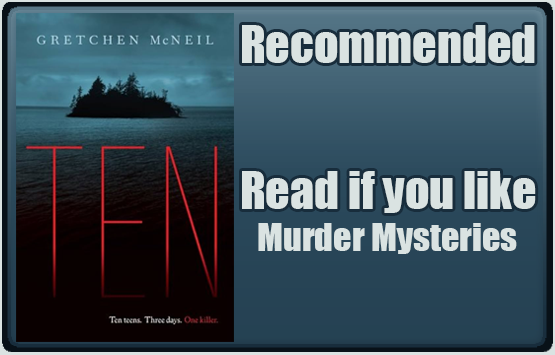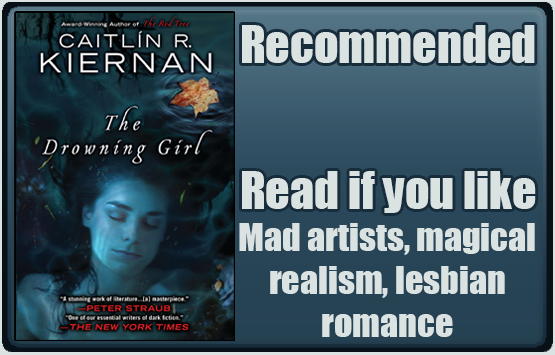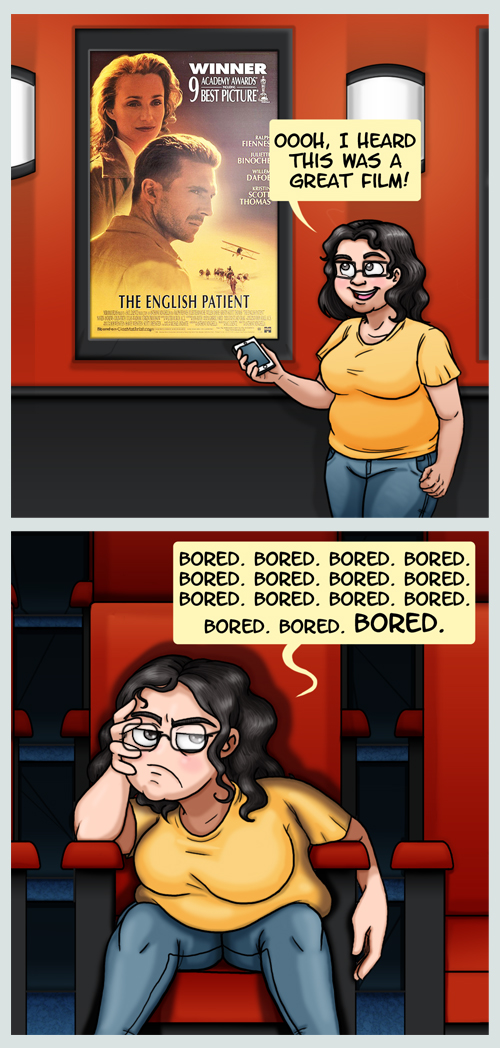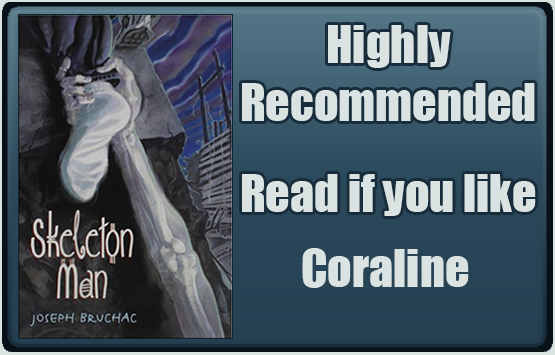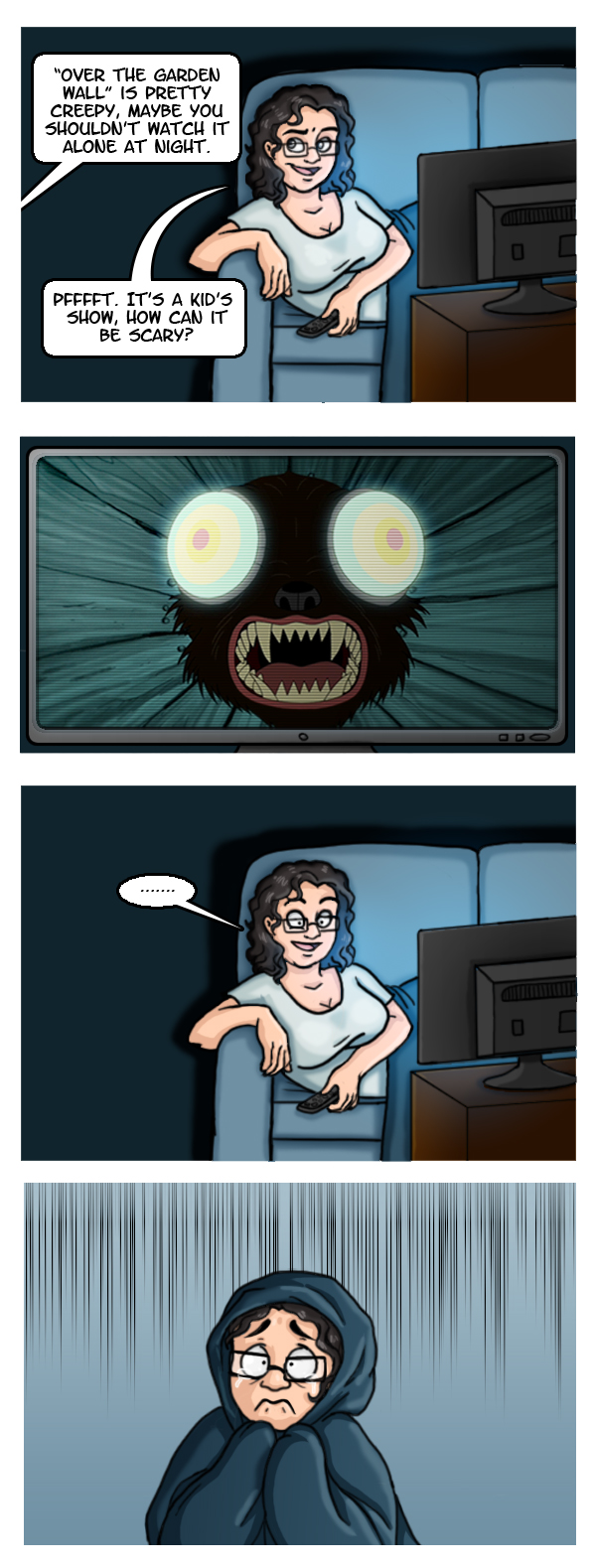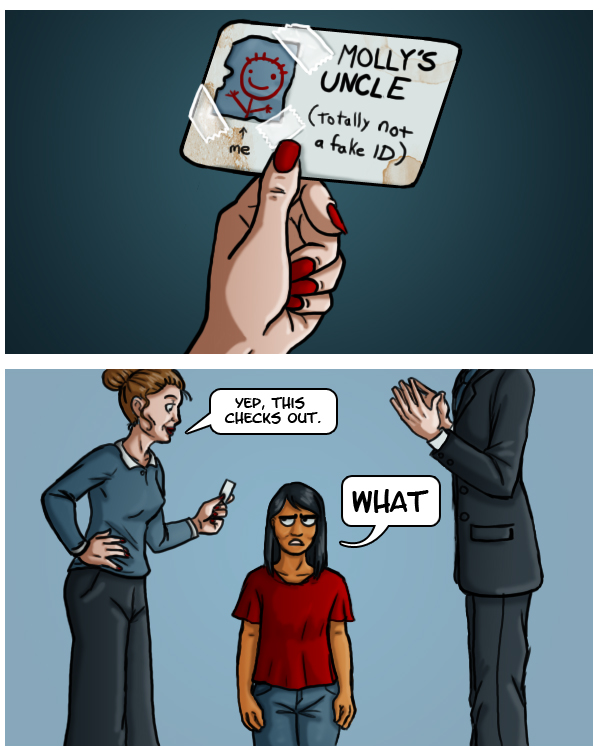Formats: Print, audio, digital
Publisher: Harper Collins
Genre: Mystery, Psychological Horror, Killer/Slasher
Audience: Y/A
Diversity: African American character, Japanese American character, Asian American character, Samoan character, Bipolar character
Takes Place in: Seattle, USA
Content Warnings (Highlight to view): Sexist Language, Abelist Language, Racist Language, Sexism, Mental Illness, Drug Use, Violence, Death
Blurb
SHHHH!
Don’t spread the word!
Three-day weekend. Party at White Rock House on Henry Island.
You do NOT want to miss it.
It was supposed to be the weekend of their lives—an exclusive house party on Henry Island. Best friends Meg and Minnie each have their reasons for being there (which involve T.J., the school’s most eligible bachelor) and look forward to three glorious days of boys, booze and fun-filled luxury.
But what they expect is definitely not what they get, and what starts out as fun turns dark and twisted after the discovery of a DVD with a sinister message: Vengeance is mine.
Suddenly people are dying, and with a storm raging, the teens are cut off from the outside world. No electricity, no phones, no internet, and a ferry that isn’t scheduled to return for two days. As the deaths become more violent and the teens turn on each other, can Meg find the killer before more people die? Or is the killer closer to her than she could ever imagine?
Ten is inspired by Agatha Christie’s bestselling mystery thriller, And Then There Were None, a tale of ten strangers with dark secrets trapped on an island with a killer who terminates them in ironic ways and publicly marks the deaths one by one. McNeil takes Christie’s original concept, sets it in modern times, changes the terrible, unlikeable adults into a bunch of terrible, unlikeable teens, does away with racism, xenophobia, and anti-Semitism, and replaces it with a diverse cast.
Like the original Christie novel, Ten starts off with ten (get it!?!) people gathering on a remote island under false pretenses only to discover that it was all a trick by the killer, who has kindly left them a Ringu-esque DVD (a gramophone record in the original) to inform the victims of their inevitable demises and remind them how shitty they all are (in case you started feeling bad for any of them). At first, no one believes the sketchy murder announcement is legit, at least until they start dropping like flies, and then all hell breaks loose. Both books involve distrust, everyone accusing each other, the fear of knowing there’s a wolf (or possibly wolves) hiding among the sheep, and of course, a party with a body count. Why do so many parties in these kind of stories end up with a bunch of dead guests? Does the Red Death just go around gate crashing every party in the horror genre? Why does every gathering of three or more people that involves alcohol inevitably end in someone’s demise? Being an introverted nerd who would rather gnaw off my own hand than attend most social gatherings, I honestly have no idea what happens at parties, so I’m just going to assume that it’s pretty standard for them to end in either mass murder or demon summoning (and now I wish I went to more parties).

A liver laceration is a small price to pay to avoid social interaction.
Last, but not least, is the diversity, which pretty much only applies to Ten since Agatha Christie was a racist asshole, so it’s pretty obvious who the winner is here, but let’s go over it anyway. Ten features a fairly diverse cast, with about half the characters being POC, in addition to a character with a fairly realistic depiction of bipolar disorder. Of course, most of the characters don’t get enough of a chance to develop anything close to a personality before they get offed, so they’re all pretty one-dimensional characters. There’s also a “rebellious” East-Asian girl with a rebellious blue streak in her hair, so Ten isn’t completely free of stereotypes either. But at least the diversity is there, even if it sometimes leans more towards “early 90’s kid show” diversity.
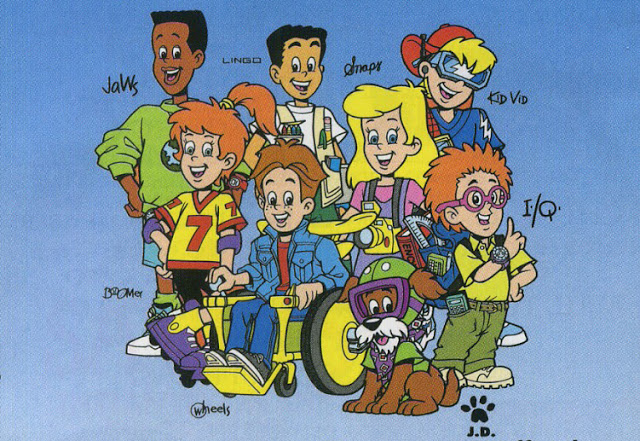
I can just imagine Wheels being like “My name is Jordan, you insensitive, ableist jerks.” Well, at least it’s better than JaWs, his names looks like a typo. Why do none of these children have normal names?! Is their mom Gwyneth Paltrow? And how come the white kids get to be in the front?
So how does the re-imagining stand up to the original classic? In terms of writing, McNeil is a decent-ish author, but there’s just no competing with Agatha “The Queen of Crime” Christie. I mean, Agatha is the world’s best-selling mystery writer (that’s not an exaggeration, she’s actually in the Guinness Book of World Records), while Ten contains the line “The whole thing had been a perfect storm of not awesome.” So yeah…any comparison between the two would be downright unfair. However, it seems like McNeil realizes this, and isn’t trying to outdo her inspiration. Plot-wise, both books have a good mystery, although the original is unbelievably difficult to solve, and requires an extensive epilogue to explain what the hell just happened because the clues are so vague. Even knowing who the killer was on subsequent readings of And Then There Were None, I couldn’t pick up on any hints as to their identity. In fact, I’m not entirely convinced Christie didn’t just randomly pull the ending out of her ass at the last minute, but whatever, at least I couldn’t guess the culprit after a few chapters. Meanwhile Ten gives the reader enough clues to figure out the ending without being super obvious. That is, unless you’ve already read And Then There Were None in which case you’re probably going figure out the killer (or killers) almost instantly. So yeaaaaaaah, sorry about that. The scary parts of Ten are done well, but the rest of the story (especially the beginning) feel forced. All the dialogue is generic teen bickering and cookie cutter conversations about crushes, school, and beer and it only exists as a quick set up before the murder spree starts.
While Christie’s novel is a psychological thriller that focuses heavily on the characters, McNeil’s work leans more towards the classic horror genre, specifically the teenage slasher/cabin in the woods kind. The characters in both stories are awful human beings, which works fine for And Then There Were None, where they’re at least complex and interesting, and we’re more interested in solving the mystery than anyone surviving. The closest thing we have to a primary cast in Christie’s book are Vera the governess, Philip Lombard the solider, Armstrong the doctor, and Blore the private investigator. And it’s still really ambiguous if any of them are the killer until the end. Christie switches the point of view frequently, so her reader becomes just familiar enough with each character to get a basic understanding of their personality, but not so much as to clue them in to the killer’s identity. In Ten we’re given a clear and likeable protagonist to root for, the shy Meg, along with her best friend, Minnie, and their shared love interest, T.J. (ugh, love triangles). This lends itself better to a slasher story where we need at least one character whose safety we fear for, and then a bunch of cannon fodder characters to satisfy the reader’s bloodlust. (Let’s face it, if you’re reading a book like this you’re looking for a body count.) The rest of the cast is one dimensional and just needs to hurry up and die. However, this does add a wrinkle to the whole revenge thing, you can’t very well root for a main character that did something terrible, so we know the killer/killers are either overreacting or there’s been a terrible misunderstanding. It also means we can rule out Meg as the killer (and assume it’s probably not Minnie either), but there are still enough potential killers left over to fuel plenty of paranoia.
Having most of the characters know each other in Ten adds an extra layer of creepiness because no one wants to believe their friend is a murderer, and the killer is quite literally backstabbing people who trusted them. In Christie’s setup, you don’t really care who gets the ax (literally and figuratively) because everyone is awful. Lombard’s an arrogant chauvinist who left a bunch of natives to die because he barely saw them as people, Blore is an overconfident idiot who falsifies evidence, and Dr. Armstrong is a spineless alcoholic who cares more about recognition and his reputation than the patient he killed while he was drunk. The only character who is sort of sympathetic is General MacArthur, and that’s only because his victim was a world class jerk who slept with the guy’s wife, and MacArthur feels genuinely remorseful about sending him on a death mission. And that’s not even including the minor characters and all the reasons they suck. The mystery and the identity of the killer are really the only things that matter in And Then There Were None (okay, and maybe whether or not Vera survives, she’s slightly more likable than her companions), which makes it a captivating read, but not particularly scary.
Because Ten is aimed at teens, McNeil threw in a completely unnecessary love triangle (as is apparently required for any book in Y/A section) because apparently a murder spree wasn’t dramatic enough. To her credit, McNeil makes the clichéd romance slightly less terrible by actually giving Meg a legitimate reason for not wanting to upset Minnie by going after their mutual crush. Minnie suffers from bipolar disorder, and even though she’s finally getting treatment, she’s still prone to making bad decisions while manic, including turning into someone Meg didn’t recognize and lashing out when she found out her best friend was also interested in T.J. Because she’s been friends with Minnie for so long, and the mental illness is a more recent development, Meg still hasn’t quite figured out a balance between an overprotective enabler and a supportive friend when Minnie is having a depressive or manic episode. Because Minnie is still in serious denial about her Bipolar Disorder and tends to minimize the severity of her symptoms Meg also feels responsible for her best friend’s wellbeing and acts like a mother hen. It also doesn’t help that Minnie’s dad has asked Meg to “take care of his daughter” and placed an unfair burden on her unqualified shoulders. As a result, the two girls have developed a toxic, codependent relationship with Meg treating Minnie like she’s some sort of fragile doll who will shatter at the slightest hardship. Honestly their dysfunctional relationship was about 100 times more interesting than their stupid crush on T.J.
It’s still about five hundred times better than the Christie’s original novel (not that that’s saying much), which, by the way, wasn’t originally called And Then There Were None. The actual title of the novel was considered too racist for American publication, 25 years prior to the Civil Rights Act. That’s right, a country where racial segregation was totally legal was like “Whoa, Agatha, that title’s pretty offensive, don’t you think?” So she can’t even use the “oh well, attitudes were different back then” excuse, (which is a bad excuse anyway) because it was still considered fucking offensive at the time it was published. Mark Twain’s used racial slurs in The Adventures of Huckleberry Finn to make a point about the evils and ugliness of slavery, but the racism, anti-Semitism, and xenophobia in And Then There Were None have literally no reason to be there. Christie, like Lovecraft (who I complain about in detail here), is one of those writers whose obvious talent is often marred by her bigotry, which sucks because her work is otherwise really enjoyable. Of course, that’s like saying “This ice cream sundae is pretty enjoyable, except there’s a dead rat in it.” I mean, you could probably eat around it, but the experience is still going to be severely tainted by a rodent carcass.
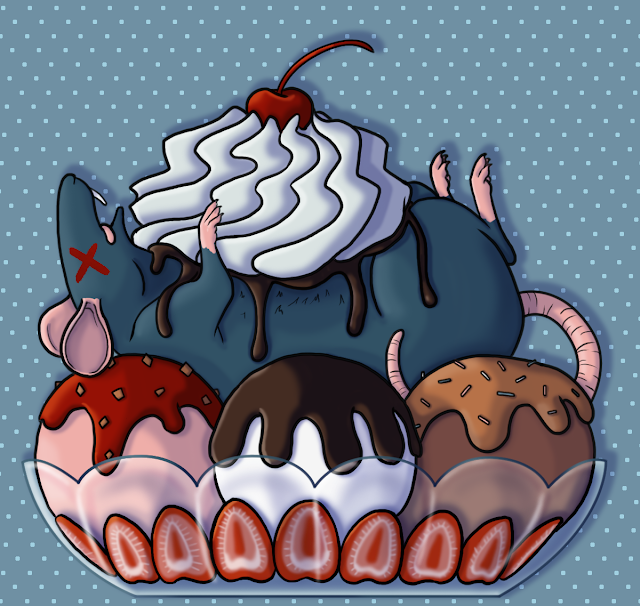
I mean, I’d probably still eat it… but I have problems.
These days, there are editions of Christie’s book that have been edited to varying degrees to make the work less jarringly racist (and before anyone starts screaming about censorship, the original, unedited version is still in print too, so you’re free to read whichever version you want), but it’s still super uncomfortable. Even in the edited versions that aren’t dropping the N-word every few pages, the ugly attitude still hangs heavy in the air throughout the story, and it’s difficult to immerse yourself in the mystery with that hanging over you. Plus, none of the anti-Semitism was edited out in the audiobook version I listened to, so I still got to “enjoy” hearing that in the first chapter. Fun! Of course, how many problematic elements you’re willing to put up with before the book becomes irredeemable depends on the individual. I liked… aspects of Christie’s book well enough, but I can understand if someone has zero desire subject themselves to 272 pages (or in my case 6 hours) of bigotry.
So, which book is better? Ten preserves some of the spirit of the original story, but does away with the blatant racism, although it leans more towards slasher horror than suspense. But And Then There Were None is considered a classic for a reason. The quality of the writing is obvious, Christie does an excellent job building the suspense, and the characters are unique and interesting (you could probably write an entire English paper on each of them). Ten isn’t a bad book, but it’s never going to be a literary classic. So, which would I recommend? Well, it really depends what you’re looking for: a fun horror story, or a classic murder mystery (and whether or not you want to deal with Christie’s racism). From a literary perspective, yes, And Then There Were None is the better work (no surprise there). But in terms of straight horror? You’ll probably get a lot more scares from reading Ten. You could always read both, like I did, just make sure to read McNeil’s book first to avoid spoilers.
